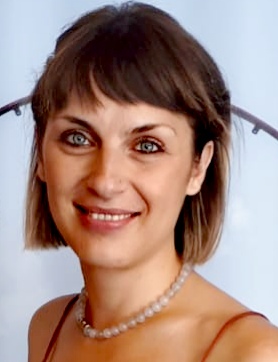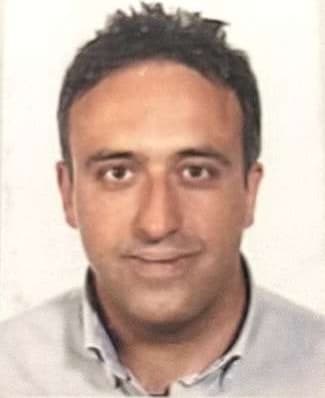Studying at the University of Verona
Here you can find information on the organisational aspects of the Programme, lecture timetables, learning activities and useful contact details for your time at the University, from enrolment to graduation.
Academic calendar
The academic calendar shows the deadlines and scheduled events that are relevant to students, teaching and technical-administrative staff of the University. Public holidays and University closures are also indicated. The academic year normally begins on 1 October each year and ends on 30 September of the following year.
Course calendar
The Academic Calendar sets out the degree programme lecture and exam timetables, as well as the relevant university closure dates..
| Period | From | To |
|---|---|---|
| Annuale (Lingue e letterature straniere) | Sep 28, 2020 | May 29, 2021 |
| I semestre (Lingue e letterature straniere) | Sep 28, 2020 | Jan 9, 2021 |
| II semestre (Lingue e letterature straniere) | Feb 15, 2021 | May 29, 2021 |
| Session | From | To |
|---|---|---|
| ESAMI LINGUE - sessione invernale | Jan 11, 2021 | Feb 13, 2021 |
| ESAMI LINGUE - sessione estiva | May 31, 2021 | Jul 24, 2021 |
| ESAMI LINGUE - sessione autunnale | Aug 30, 2021 | Sep 25, 2021 |
| Session | From | To |
|---|---|---|
| LAUREE LINGUE - sessione autunnale (a.a. 2019/20) | Nov 2, 2020 | Nov 7, 2020 |
| LAUREE LINGUE - sessione straordinaria (a.a. 2019/20) | Apr 7, 2021 | Apr 13, 2021 |
| LAUREE LINGUE - sessione estiva (a.a. 2020/21) | Jul 5, 2021 | Jul 10, 2021 |
| Period | From | To |
|---|---|---|
| Festa di Ognissanti | Nov 1, 2020 | Nov 1, 2020 |
| Festa dell'Immacolata | Dec 8, 2020 | Dec 8, 2020 |
| Festa della liberazione | Apr 25, 2021 | Apr 25, 2021 |
| Festa del lavoro | May 1, 2021 | May 1, 2021 |
| Festa del Santo Patrono | May 21, 2021 | May 21, 2021 |
| Festa della Repubblica | Jun 2, 2021 | Jun 2, 2021 |
Exam calendar
Exam dates and rounds are managed by the relevant Foreign Languages and Literatures Teaching and Student Services Unit.
To view all the exam sessions available, please use the Exam dashboard on ESSE3.
If you forgot your login details or have problems logging in, please contact the relevant IT HelpDesk, or check the login details recovery web page.
Should you have any doubts or questions, please check the Enrollment FAQs
Academic staff
 silvia.cavalieri@univr.it
silvia.cavalieri@univr.it
 riccardo.cella@univr.it
riccardo.cella@univr.it
 elisa.dallarosa@univr.it
elisa.dallarosa@univr.it
 jacopo.galavotti@univr.it
jacopo.galavotti@univr.it
 sara.giovine@univr.it
sara.giovine@univr.it
Morbiato Giacomo
 giacomo.morbiato@univr.it
giacomo.morbiato@univr.it
 chunye.niu@univr.it
chunye.niu@univr.it
 sara.paolini@univr.it
sara.paolini@univr.it
 tania.triberio@univr.it
tania.triberio@univr.it
Study Plan
The Study Plan includes all modules, teaching and learning activities that each student will need to undertake during their time at the University.
Please select your Study Plan based on your enrollment year.
1° Year
| Modules | Credits | TAF | SSD |
|---|
1st foreign language2nd foreign language1st foreign literature and cultureGerman literature and culture 1
2 foreign literature and cultureGerman literature and culture 1
2° Year activated in the A.Y. 2021/2022
| Modules | Credits | TAF | SSD |
|---|
1st foreign language2nd foreign language1st foreign literature and culture or a related courseAnglophone literatures and cultures
English literature and culture 2
French literature and culture 2
German literature and culture 2
Spanish literature and culture 2
2nd foreign literature and culture or a related courseAnglophone literatures and cultures
English literature and culture 2
French literature and culture 2
German literature and culture 2
Spanish literature and culture 2
Italian literature and culture
Geography of communication and international trade
Modern and Contemporary Economic History
Theory and Techniques of communication
3° Year activated in the A.Y. 2022/2023
| Modules | Credits | TAF | SSD |
|---|
1st foreign language2nd foreign languageComparative and European Public law
Principles of international marketing
| Modules | Credits | TAF | SSD |
|---|
1st foreign language2nd foreign language1st foreign literature and cultureGerman literature and culture 1
2 foreign literature and cultureGerman literature and culture 1
| Modules | Credits | TAF | SSD |
|---|
1st foreign language2nd foreign language1st foreign literature and culture or a related courseAnglophone literatures and cultures
English literature and culture 2
French literature and culture 2
German literature and culture 2
Spanish literature and culture 2
2nd foreign literature and culture or a related courseAnglophone literatures and cultures
English literature and culture 2
French literature and culture 2
German literature and culture 2
Spanish literature and culture 2
Italian literature and culture
Geography of communication and international trade
Modern and Contemporary Economic History
Theory and Techniques of communication
| Modules | Credits | TAF | SSD |
|---|
1st foreign language2nd foreign languageComparative and European Public law
Principles of international marketing
| Modules | Credits | TAF | SSD |
|---|
Legend | Type of training activity (TTA)
TAF (Type of Educational Activity) All courses and activities are classified into different types of educational activities, indicated by a letter.
Spanish language 2 [CInt] (2021/2022)
Teaching code
4S002918
Credits
9
Language
Spanish
Scientific Disciplinary Sector (SSD)
L-LIN/07 - LANGUAGE AND TRANSLATION - SPANISH
The teaching is organized as follows:
Parte I
Parte II
Learning outcomes
The course aims at helping students:
– know the basic theoretical concepts of Spanish Phonetics and Phonology;
– know normative aspects of Spanish pronunciation;
– know the phonetic and phonological system of Spanish in contrast with Italian;
– think about phonetic and phonological structures of both languages by means of phonetic transcriptions;
– do phonetic and phonological transcriptions;
– observe the differences between pronunciation and spelling;
– produce phonetically correct speech, which is especially important in professions where professional success often depends on oral interaction with native speakers.
Expected Spanish proficiency level is B2 according to the Common European Framework of Reference for Language
Program
The course intends to outline the phonetic and phonological systems of contemporary standard Spanish. The fundamental concepts of Spanish phonetics, exemplified in detail with transcriptions, as well as those elements emerging from a contrastive analysis between the Italian and the Spanish systems, will be examined:
- Theoretical aspects (phonatory apparatus, phonology, phonetics, phoneme, phone, stress, syllable, etc.)
- Phonetic and phonological contrastive analysis of Italian and Spanish; phonemes, allophones, prosodic aspects.
- Phonetic alphabet.
All teaching material used during the course (presentations, texts, short essays and articles etc.) is part of the bibliography for the final exam and will be available on the Moodle platform.
Bibliography
Examination Methods
The exam consists of a test on theoretical and practical questions related to the course program, the bibliography and the didactic materials provided in e-learning mode. Both the formulation of the questions and the answers will be made in writing and in Spanish. The test consists of open-ended questions, multiple-choice questions and exercises. Some require metalinguistic reflection, the ability to detect phenomena handled throughout the course and to provide examples of them. The grade will be determined by calculating the average between the score obtained in the linguistic competence (B2) and that obtained in the test of the subject. The results will be communicated through a notice published on the corresponding website ("Avvisi"). For students who do not attend class, the program and the form of evaluation are the same.
LINGUISTIC COMPETENCE REQUIRED:
Level 3 (ALTE), B2 (Council of Europe).
Assessment of linguistic competence will be on the grounds of certificates issued by the CLA (the University Linguistic Centre) or by other accredited institutions (see “Students’ Manual”, p. 25).
PREREQUISITES: Students taking this exam must have already passed the exams of Spanish Language and Literature of the 1st year.
Erasmus students should contact the teacher.
Type D and Type F activities
To discover all the teaching activities accredited by the foreign teaching college click here
Career prospects
Module/Programme news
News for students
There you will find information, resources and services useful during your time at the University (Student’s exam record, your study plan on ESSE3, Distance Learning courses, university email account, office forms, administrative procedures, etc.). You can log into MyUnivr with your GIA login details: only in this way will you be able to receive notification of all the notices from your teachers and your secretariat via email and soon also via the Univr app.
Student login and resources
Gestione carriere
Assegnazione tutore
Attività accreditate D/F
Calendario didattico dettagliato
Cambio lingua curriculare
Competenze informatiche
Competenze linguistiche (prima e seconda lingua)
Competenze linguistiche in triennale (terza lingua CFU F)
Compilazione del piano didattico
Corso di Lingua portoghese
Erasmus+ e altre esperienze all'estero
Linguistic training CLA
Presentazione dei corsi di studio e Open day
Graduation
List of theses and work experience proposals
| Stage | Research area |
|---|---|
| PROGETTO MAMBRINO Stage per bibliografia | Various topics |
Saperi minimi
Stage e tirocini
Nel piano didattico della laurea triennale in Lingue per il turismo e il commercio internazionale (L12) è previsto un periodo di stage obbligatorio (CFU 6) in organizzazioni imprenditoriali.
Le attività di stage sono finalizzate a far acquisire allo studente una conoscenza diretta in settori di particolare interesse per l’inserimento nel mondo del lavoro e per l’acquisizione di abilità professionali specifiche.
Le attività di stage sono svolte sotto la diretta responsabilità di un singolo docente presso studi professionali, enti della pubblica amministrazione, aziende accreditate dall’Ateneo veronese.
I crediti maturati in seguito ad attività di stage saranno attribuiti secondo quanto disposto nel dettaglio dal “Regolamento d’Ateneo per il riconoscimento dei crediti maturati negli stage universitari” vigente.
- Tutte le informazioni in merito agli stage per futuri studenti sono disponibili alla pagina Stage e tirocini.
- Tutte le informazioni in merito agli stage per studenti iscritti sono pubblicate in MyUnivr - come fare per - stage e tirocini.
- Tutte le informazioni in merito agli stage per le aziende sono disponili alla pagina Stage e tirocini per azienze.
Ulteriori informazioni al seguente link https://www.univr.it/it/i-nostri-servizi/gestione-carriere-studenti-lingue-e-letterature-straniere/stage-e-tirocini-lingue-e-letterature-straniere

 045-8028678
045-8028678
























































